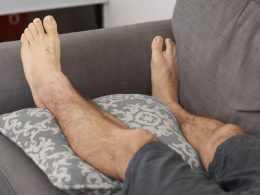Introduction
Feeling stuck in a rut? The mental health benefits of travel offer a fresh start. When you step outside your daily routine, you tap into the transformative power of travel. New sights, sounds, and cultures can lift your mood and help you see life from a brighter view. Simple changes—like a weekend break or a weekend hike—can ease anxiety and spark joy. In this article, we’ll explore why travel mental health boosts happiness, lowers stress, and builds confidence. Read on to learn practical tips for planning trips that heal your mind and soul.
How Travel Reduces Stress
Travel gives your mind a break. Leaving chores and deadlines behind helps lower cortisol, the stress hormone. A study found that people reported less anxiety during and after trips. When you explore a new city or walk on a quiet beach, your thoughts shift away from worries. Even short journeys—like a train ride to a nearby town—offer a reset button. Packing light and going with an open heart lets you enjoy each moment. With less stress, you sleep better and feel more present.
Boosting Creativity and Confidence
Seeing new places sparks fresh ideas. You might notice art, architecture, or local crafts that inspire you. Trying new foods or learning a few words of another language stretches your mind. Each small success—navigating unfamiliar streets or ordering confidently—builds self-belief. Over time, these wins add up, making you more willing to take on challenges back home. Creative sparks can appear in everyday tasks, from cooking to writing. Travel shows you that you can adapt and thrive.
Connecting with Nature and Culture
Nature heals. A hike in the hills or a walk through a forest lowers blood pressure and calms racing thoughts. Even urban green spaces, like city parks or riverside paths, offer quiet time. Cultural immersion adds another layer of benefit. Visiting museums, markets, or places of worship deepens your sense of meaning. You learn new customs and meet people with different views. This broadened perspective can reduce negative self-talk and increase feelings of gratitude.
Building Social Bonds
Travel brings you closer to friends and family—or helps you make new connections. Sharing an adventure, like a road trip or guided tour, strengthens bonds. Laughing over a local meal or swapping stories by a campfire creates lasting memories. Solo travellers also find camaraderie. In hostels or community events, it’s easy to meet like-minded people. Social ties are vital for mental health. Strong bonds boost your mood and provide support when you face tough times.
Mindful Travel Practices
To reap mental health gains, practice mindfulness on the road. Start each day with deep breaths or a short meditation. Notice the colors, sounds, and smells around you—fresh coffee, sea breeze, or market spices. Keep a simple travel journal. Jot down moments that made you smile or surprised you. Limit screen time so you stay present. Even mindful eating—savouring one local snack at a time—can ground you. These practices make every trip more restorative and memorable.
Planning for Well-Being
Good planning reduces travel stress. Choose destinations that match your energy level and budget. If you need calm, pick quieter spots like rural villages or seaside towns. For social perks, consider festivals or group tours. Book accommodations with flexible check-in times. Pack basics—medications, snacks, water—and leave room for last-minute finds. Research local customs and language basics to feel more at ease. A well-planned trip means you spend less time worrying and more time enjoying.
Solo Travel vs Group Travel
Both solo and group travel have perks for mental health. Solo trips boost confidence and independence. You set your own pace and follow your interests. Group trips offer built-in social support and shared learning. You might try activities—like zip-lining or cooking classes—with more ease when others are with you. If you feel anxious alone, a small tour or a trusted friend can ease you in. Choose what feels safest and most fun for you.
Overcoming Travel Anxiety
Many people feel anxious before a trip. Start small: plan a day-trip or an overnight stay nearby. Use checklists to pack and confirm details in advance. Practice relaxation techniques—like deep breathing or guided imagery—before and during travel. Talk about your plans with a friend or family member for reassurance. If you use medication or therapy, consult your professional before departure. With each successful trip, your confidence grows and anxiety shrinks.
Conclusion
Travel can be a powerful tool for mental health. The transformative power of travel helps you break free from routine, reduce stress, and boost mood. New experiences spark creativity, strengthen confidence, and deepen social bonds. Whether you travel solo or in a group, embracing nature, culture, and mindful habits makes every trip restorative. Careful planning eases anxiety, and each journey builds resilience. By tapping into the mental health benefits of travel, you give yourself space to heal and grow. Plan your next escape, and discover how exploring the world can lift your spirit and enrich your life.









